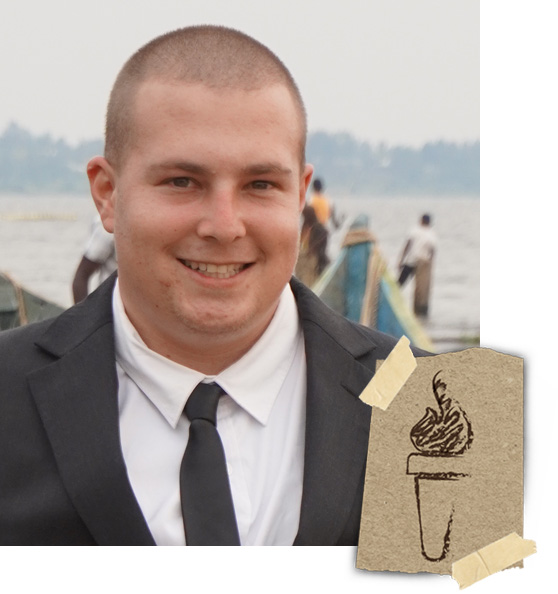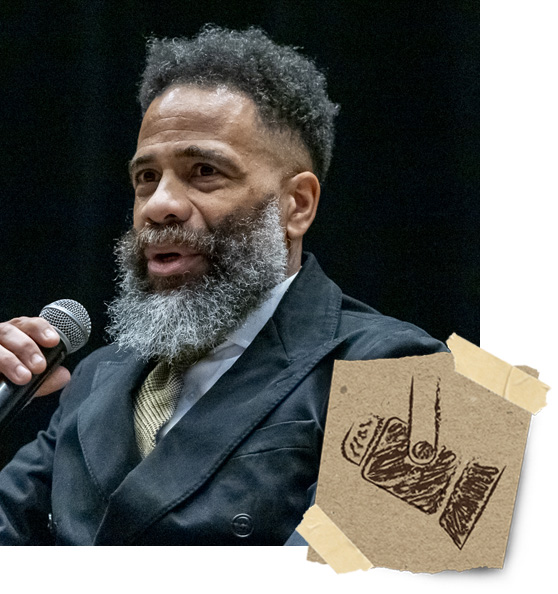Access Torch: Zachary Levy
August 19, 2025 - Emily Jodway
 During August, we recognize the International Day for the Remembrance of the Slave Trade and its Abolition, celebrated each year on August 23. This day commemorates the start of the Haitian Revolution, a 1791 uprising by enslaved individuals in the Carribbean which played a crucial role in the eventual abolition of the transatlantic slave trade. This August, we also highlight individuals doing impactful work or research related to African history.
During August, we recognize the International Day for the Remembrance of the Slave Trade and its Abolition, celebrated each year on August 23. This day commemorates the start of the Haitian Revolution, a 1791 uprising by enslaved individuals in the Carribbean which played a crucial role in the eventual abolition of the transatlantic slave trade. This August, we also highlight individuals doing impactful work or research related to African history.
Zachary Levy, a PhD candidate in the Department of History, has been researching the history of the African slave trade since his time as an undergraduate student at California Polytechnic University of San Luis Obispo. Originally pursuing history in the general sense, Levy was introduced to African history and the study of the slave trade by a professor, Dr. Matthew Hopper, who specialized in the topic.
“I started volunteering for him on a project where we would read old British documents which recorded the capture of individual slave ships, and put it all on a digitized map where you could view the locations of where each ship was captured,” Levy explained.
Levy was instantly hooked. He began taking Swahili classes online and took his first trip to Africa at the end of his bachelor’s program. After earning his master’s degree, he spent eight months in Kenya volunteering as a teacher while continuing his research into the slave trade, which had narrowed in to concentrate on its impact in East Africa.
Having previously heard about MSU’s African History program, Levy made his eventual decision to earn his doctoral degree here in East Lansing once he had read more about history professors Walter Hawthorne and Michelle Moyd and the expansive research they were working on in his area of interest. Levy embarked on his three-day road trip to relocate to Michigan.
“I had the option of staying local in California, but I knew that Michigan State held not only one of the best African History programs, but also a really great amount of diversity within the program, and that it could lead to a lot of opportunities in the future,” he said.
Levy’s decision to study East Africa stemmed from the research he began in his undergraduate career and problems he ran into when trying to find documentation of the slave trade in this region. West Africa and trading between the Americas has been heavily studied, while knowledge of East Africa and its routes to the Middle East is less documented. Levy is currently in Kenya conducting his research over the summer.
“I’m mainly trying to help open up the knowledge of the slave trade here in Kenya from inland near Lake Victoria to the coast,” he explained. “It’s an area that people don’t necessarily cover, because some of the languages are a bit more difficult.”
While his previous research has drawn upon evidence recorded in archival photographs and documents to trace the history of the slave trade and the ships themselves, his current work involves Levy learning right to the source. While in Kenya, he has been conducting oral interviews with locals who have passed on oral histories or whose familial ancestors engaged with the slave trade. His ultimate goal is to expand the available knowledge of the East African slave trade while also uncovering more information about individual formerly enslaved individuals.
“I’ve really enjoyed moving past just associating someone with a number or a ship, and actually listening to personal stories and learning about a specific case- who the person was, what their enslaved journey looked like, where their descendents settled,” Levy said.
The circumstances for enslaved East Africans and the nature of the East African slave trade were very unique and complex, Levy explains. Despite abolition beginning in 1807 in West Africa and eventually making its way to East Africa in 1873, many Africans continued working with slave traders of their own volition, a history that is less often known and discussed. But even this information can be valuable in painting a complete picture of slavery in general and how the slave trade in East Africa continued and transformed after aboliton.
“Each person I interview holds a different part of these histories, but mainly they talk about their agency within the scheme, and how they were in control,” Levy said.
However, even within a mutual trade, individuals frequently fell victim to false promises. Many were told they would only be needed to carry heavy goods to the coast and then would be able to return to their villages, but in reality, according to locals, most never came back.
With his research, Levy hopes to continue bringing to light these complex histories while preserving the stories of individuals involved that can then be used for greater education on the slave trade as a whole.
“People have general thoughts about what the slave trade was, but it’s important that we move past these broad explanations and really look into the fine details and experiences these people actually had, how communities and families were impacted, and the challenges that came with dealing with the slave trade within a region,” he said.
This can also open up the door for the enhancement of archival history sites like MSU’s own enslaved.org , and can lead to new discoveries in genealogy.
“Within your work, you’re not only providing more knowledge, but you’re adding a new way for people to learn more about their family history and ancestry and its place within our culture.”
At Michigan State, Levy is also a member and cofounder of the student Swahili club, which he created with the help of fellow students and Assistant Professor of African Languages and Cultures, Jonathan Choti. He hopes that the addition of a Swahili club on campus also opens up the availability of the history and culture to a broader audience.
The celebration of the International Day for the Remembrance of the Slave Trade gives us an opportunity to recognize the history that individuals like Levy are researching every day.
“Not too many people know the truth about the slave trade, how in-depth it really was, how it impacted people, and how long it went on for,” he said. “Celebrating this day is very important, because it is abolition documents that are leading to people’s names being known within the abolition. We’re moving past the numbers and actually learning about the enslaved Africans themselves. It opens up a way to know more about this part of history and to be able to celebrate a time where we do see this enslavement finally coming to an end.”
Honorees’ views are their own and do not necessarily reflect those of the College of Social Science.
Read more:

Access Champion
Faculty/Staff
Dr. Walter Hawthorne
Dr. Hawthorne is a scholar of the Atlantic World and Director of Enslaved.Org, one of the largest publicly available databases of people involved in various aspects of the global slave trade.

Access Spotlight
Alumni
Dr. Pero Dagbovie
This month, we “spotlight” Dr. Pero Dagbovie, University Distinguished Professor of African American History, administrator, and a recent author of a book exploring the long durée of African American experiences at MSU.

Access Matters
We strive to cultivate an inclusive and welcoming college environment that celebrates a diversity of people, ideas, and perspectives.

